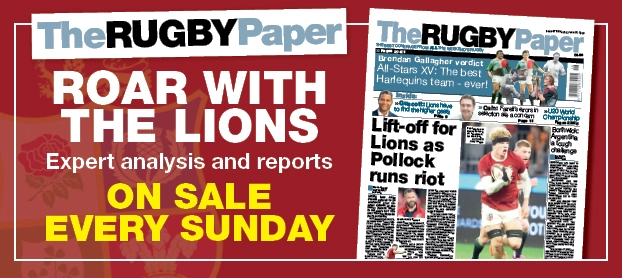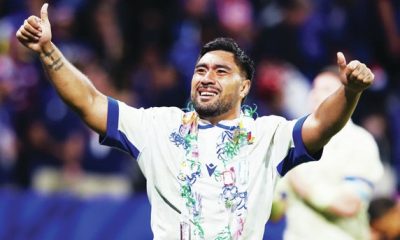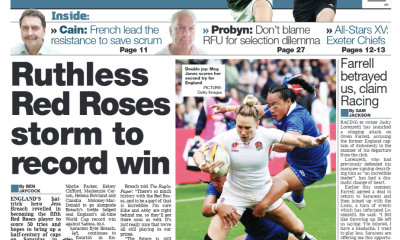Features
I couldn’t let my old club go to the wall
More in Features
-
Newcastle Red Bulls move for Italy hooker Hame Faiva
Newcastle Red Bulls have signed Italy hooker Hame Faiva on a one-year deal. The...
-
Dream Team – David Warwick
David Warwick, the former Wigton, Waterloo, Cumbria rugby union centre/wing and Barrow rugby league...
-
Griffiths back at Dragons as S&C coach
NEWS EXTRA FORMER back row Ollie Griffiths has returned to Dragons as a strength...
-
Becconsall joins Pirates
EXETER Chiefs scrum-half Will Becconsall has returned to Cornish Pirates for a second loan...






























